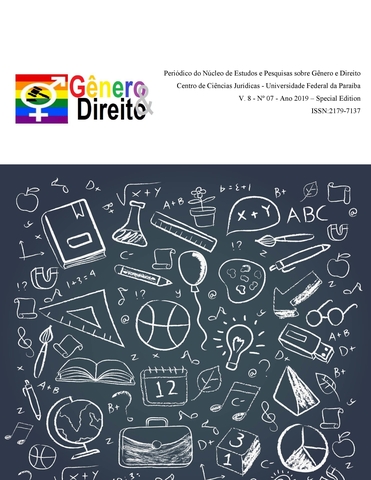ELECTRONIC LEARNING TOOLS AS A MEANS OF INCREASING THE EFFECTIVENESS OF INCLUSIVE EDUCATION
DOI:
https://doi.org/10.22478/ufpb.2179-7137.2019v8n7.49979Palavras-chave:
e-learning modalities, e-learning resource, inclusive educationResumo
Today, the education of young people with disabilities is given special attention. Therefore, inclusive education becomes the main focus of teaching such children. It is based on the use of learning technologies allowing for all children to obtain knowledge in ordinary schools, taking into account the peculiarities of their development. This opportunity is provided by the active use of electronic learning tools. Therefore, there is a need to create and implement integrated electronic educational resources that will have the focus of tasks on a specific subject for the purpose of teaching children with special needs. The authors indicate a comparative analysis of thematic sites as one of the leading methods in the study of this problem; the limitedness of use of electronic educational resources in inclusive education was revealed on the basis of this method. The main results of the study include the development of an electronic educational resource on the topic "Number Systems" and methodological recommendations on the organization of the educational process with its use in inclusive education. Their significance lies in the fact that they can be recommended for use by teachers, and can also become a tool for self-study of this topic. The results of the research fill in the existing gaps in the theory of general education, contribute to the solution of questions about the motivation of teaching computer science to special needs children
Downloads
Referências
2 Akhmedova A.M. Implementation of the computer tutorial program “Photoshop graphics editor” in the Delphi programming environment / A.M. Akhmedov, G.Z. Khabibullina, I.A. Khuzina // Kazan Pedagogical Journal. - No.1 (132). - 2019. - P.70-74.
3 Pugachev A. S. Inclusive education as a means of integration into the labour activity / A. S. Pugachev // Secondary professional education. - 2012. -No. 7. - pp. 5-6.
Federal Institute of Pedagogical Measurements [Digital source]. - Access mode: http://www.fipi.ru/
Federal Center for Information and Educational Resources [Digital source]. - Access mode: http://fcior.edu.ru
Center for Inclusive and Distance Education [Digital source]. - Access mode: http://cde.sipkro.ru/moodle/
Betz, N. Contributions of self-efficacy theory to carer counselling: a personal perspective / N. Betz // The Career Development Quarterly. – 2004. – Vol. 52. – PP. 340 – 353.
Khabibullina G.Z., Makletsov S.V., Khairullina L.E. Application of information technologies to improve the quality of mathematical training teachers of natural-science disciplines // International journal of engineering and technology (UAE). – 2018. – Vol.7, Is.4. – P.74-77.
Khabibullina G.Z., Shigapova E.D., Rusanova I.A. The Development of Academic Mobility of Students of Pedagogical Departments in Universities / European Proceedings of Social & Behavioural Science EpSBS. – 2016. – Vol. 12. – PP. 83-88
Makletsov S.V., Khabibullina G.Z. E-learning Model for Bachelors, Specializing in Mathematics and IT // The European Proceedings of Social & Behavioural Science EpSBS. – 2016. – Vol. 12. – P. 115-119
Makletsov S.V., Starshinova T.A., Khabibullina G.Z. Formation model of information competence of bachelors specializing in mathematics & computer sciences // Journal of organizational culture communications and conflict. – 2016. - Vol. 20, Sp. issue 2 – P. 173-179.

